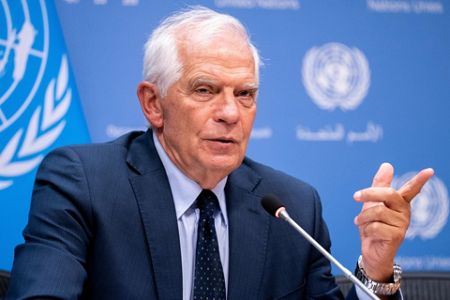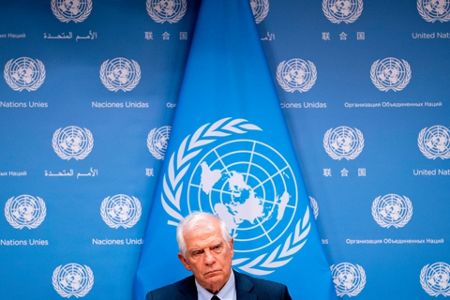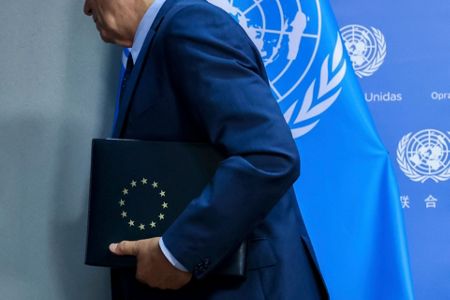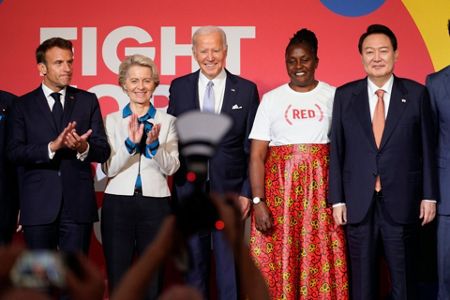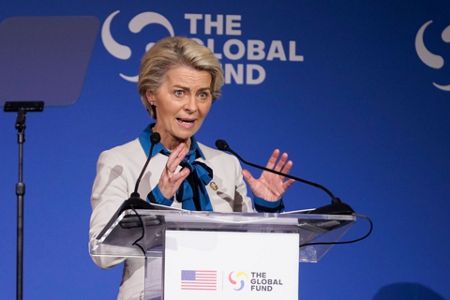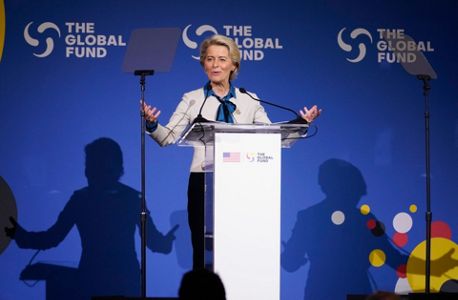BRUSSELS (AP) — The European Union appears determined to respond to new Russian attempts to annex parts of Ukraine with more sanctions, but finding a consensus among member countries is becoming increasingly difficult as measures meant to punish Moscow bite into their own economies.
The 27-nation bloc has imposed six rounds of sanctions on Russia since President Vladimir Putin ordered his forces into Ukraine on Feb. 24. Banks, companies and markets have been hit — even parts of the sensitive energy sector — and more than 1,200 officials been targeted with asset freezes and travel bans.
What could have taken years to agree on in the past was achieved in just over three months — relative light speed for the EU. But European economies already battered by the COVID-19 pandemic are now fighting high inflation, with skyrocketing electricity and natural gas prices.
The spur for the EU to act again was the announcement that Russian-controlled regions in eastern and southern Ukraine plan to hold referendums on becoming part of Russia. This could allow Moscow to escalate the war, especially after Putin’s decision to call up 300,000 military reservists.
EU foreign policy chief Josep Borrell said Wednesday that “Russia, its political leadership, and all those involved in organizing these ‘referenda’ as well as in other violations of international law and international humanitarian law in Ukraine will be held accountable.”
“Additional restrictive measures against Russia will be brought forward as soon as possible in coordination with our partners,” he said in a statement after chairing an emergency meeting of EU foreign ministers on the sidelines of the U.N. General Assembly in New York.
But political declarations by officials based in Brussels are the easy part. Agreeing on new measures has proven exceedingly difficult. Energy interests are notably hard to overcome. Hungary has led resistance to sanctions that might hit its supplies from Russia, but it isn't alone in hesitating.
The last round of sanctions was announced on May 4, but only agreed on four weeks later, as concerns over oil divided member countries. Rather than a new set of sanctions, a “maintenance and alignment” package was sealed in July, mostly to close loopholes on measures already agreed upon.
That said, the mayor of Moscow was one of 54 more people whose assets were frozen and Sberbank — a major Russian financial institution — was also targeted.
Meanwhile, technical work on a seventh package has quietly continued.
Pressed by reporters in New York for details about what might be coming, Borrell said the sanctions would target “new areas of the Russian economy, especially — if I can be a little more concrete — the technological ones.”
“I am sure that we will be able to find a unanimous agreement for the new sanctions package,” he said.
Ursula von der Leyen, who heads the EU's executive branch — the European Commission — which has been responsible for drawing up most of the sanctions, also appeared resolute, but she was hardly more forthcoming.
“We stand ready to impose further economic costs on Russia and on individuals and entities inside and outside of Russia who support (the war), politically or economically. Plus we will propose additional export controls on civilian technology as Russia moves to a full war economy,” she told CNN.
The European Commission should propose the new measures in coming days, but what is ultimately agreed on is likely to be less ambitious. New sanctions may only come after much debate and hand-wringing among the 27 EU member countries in coming weeks; probably only after the referendums have been held.
___
Follow the AP’s coverage of the war at https://apnews.com/hub/russia-ukraine
Copyright 2022 The Associated Press. All rights reserved. This material may not be published, broadcast, rewritten or redistributed without permission.


